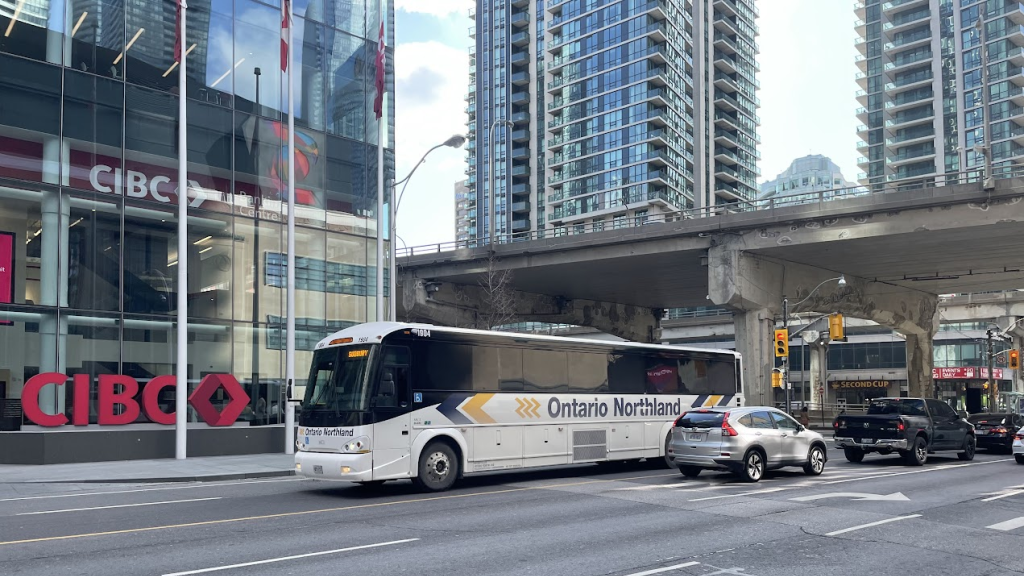
The Standing Committee on Transport, Infrastructure and Communities presented a report entitled Improving Bus Connectivity in Canada to the House of Commons on May 30, 2023.
This report arises from widespread concern from politicians of all parties and every region of Canada about the state of the intercity bus network across Canada. Bus travel across Canada has becoming increasing difficult, fragmented, and for many communities, non-existent following years of services reductions, including the withdrawal of Greyhound from western Canada in 2018, and then from Ontario and Quebec in 2020, and the elimination of the Saskatchewan Transportation Company in 2017. Efforts by private sector carriers to reinstate services on abandoned routes have been further hampered by the pandemic, with major city pairs like Winnipeg and Regina receiving only once-weekly service.
The committee heard testimony from witnesses from across the industry and other stakeholders. Transport Action president Terry Johnson testified before the committee in November 2023, relaying recommendations from our previous policy work, including our summer 2022 research project on the motorcoach industry, and ideas arising from the Coast-to-Coast Bus Coalition proposal developed by the industry.
We are delighted that the committee has adopted many of these recommendations in its report, including coordination with passenger rail, stop location and schedule coordination at hubs, and the establishment of a nationwide interline fare clearing house to facilitate worry-free connections between services for passengers:
Recommendation 1 – Intermodal Connections
That the Government of Canada collaborate with all stakeholders, including provincial and territorial governments, Indigenous communities, municipalities, as well as public and private operators, to encourage the coordination of intercity bus routes with passenger rail and air travel.
Recommendation 2 – Creating a National Clearing House/Communications Platform
That the Government of Canada work the provinces and territories and with private and public bus operators to facilitate the creation of a non-profit, national clearing house/communications platform to allow for seamless travel between provinces for passengers.
Recommendation 3 – Better Intermodal Connections Between VIA Rail and Other Modes of Transport
That VIA Rail establish a system to provide real-time reporting of arrivals and departures to other modes of transportation (ex. taxis, ride-sharing operators, etc.) to facilitate timely and convenient intermodal connections.
Recommendation 4 – Assessing and Addressing Knowledge Gaps (Habits of Intercity Transit Users)
That the Government of Canada collaborate with all stakeholders, including provincial and territorial governments, Indigenous communities, municipalities, as well as public and private operators, to assess and address the current knowledge gaps with regards to the habits and needs of intercity transit users in Canada.
Recommendation 5 – Expanding the RTSF to Cover Private Bus Carriers and Intercity Routes
That the Government of Canada expand the Rural Transit Solutions Fund to incentivize the development of intercommunity rural routes, and allow private bus carriers providing services on such routes to access the Fund.
Recommendation 6 – Harmonization of Licensing Requirements
That the Government of Canada recognize that the private sector plays an important role in providing intercity bus service and take steps to harmonize licensing requirements between provinces, while respecting provincial and territorial jurisdiction.
Recommendation 7 – Government’s Responsibility for Reconciliation
That the Government of Canada recognise its role in delivering safe, reliable and affordable inter-regional transit to Indigenous communities, as part of its responsibility towards Indigenous reconciliation.
The committee has requested that the government table a comprehensive response to their report.
Transport Action supports these recommendations, and hopes the government will move swiftly to address the crisis in bus service and bus-rail connectivity in Canada. In our follow-up brief to the committee we highlighted the use of open standards, including General Transit Feed Specification for sharing route and schedule data to make services discoverable across all online mapping and wayfinding platforms. To enable interline fare integration across operators and retailers, we recommended the adoption of the Open Sales and Distribution Model, developed by the UIC, citing Sweden’s success in integrating 30 public and private sector bus operators with their national passenger rail carrier through a partnership called Samtrafiken.
Following standard practice with committee reports, the NDP members of the committee attached a dissenting opinion, calling for the Minister of Transport to demonstrate the federal leadership needed to reconnect Canadian communities by establishing a publicly owned national bus network, led by a crown corporation and integrated with rail and air services.
The Conservative members of the committee called for the Carbon Tax to be ameliorated or rebated to motorcoach carriers support the financial viability of scheduled motorcoach services; but did not tackle the larger tax burden and rural-urban inconsistency of the application of GST to intercity bus fares.
Removing the GST from all bus and rail fares, giving them the same tax treatment as urban transit, was the only significant recommendation from Transport Action that was not reflected in the committee’s report.